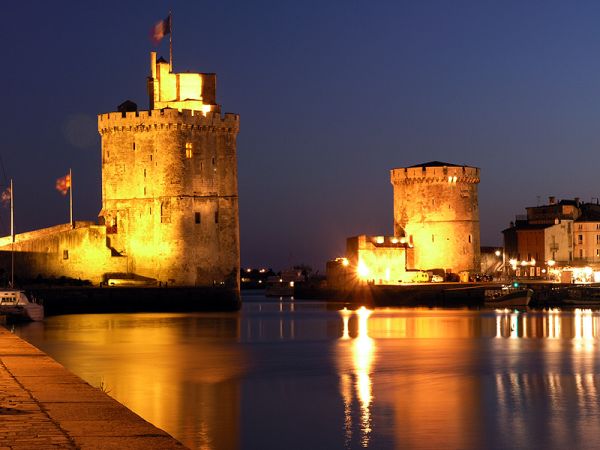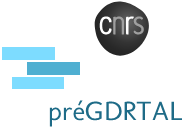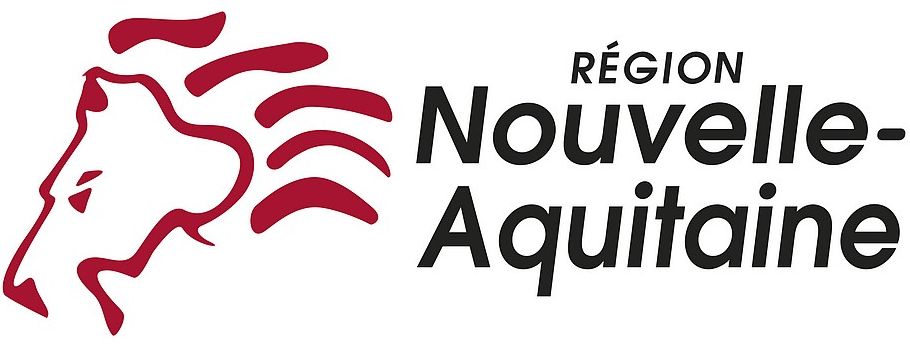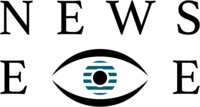|
Announcements |
||||||
|
|
Please help us to
improve the
Wikipedia article |
20th International Conference on Computational Linguistics and Intelligent Text Processing
April 7 to 13, 2019 • La Rochelle, France
Publication:
Springer
Lecture Notes in Computer Science;*
special issues of journals.
Cultural program: three full-day tours to:
Bordeaux / Cognac, Loire valley castles, Fort Boyard / isle of Aix.
Keynote:
Preslav Nakov, Paolo Rosso, Lucia Specia, Carlo Strapparava.
Awards: best paper, best presentation, best poster,
best software.
See our verifiability, reproducibility, and
working description policy
Endorsement by the
Association for Computational Linguistics (ACL) anticipated
Image from
upload.wikimedia.org
La Rochelle by night |
See also photos of past CICLing events
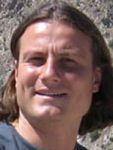 |
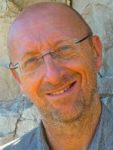 |
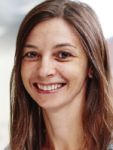 |
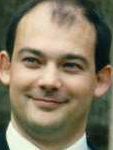 |
|||
|
Preslav Nakov QCRI, Qatar |
Paolo Rosso UPV, Spain |
Lucia
Specia U. Sheffield, UK |
Carlo Strapparava FBK, Italy |
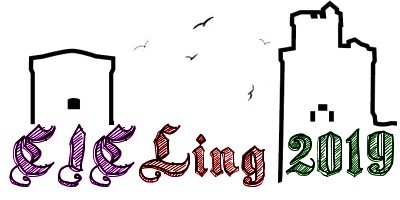
Call For Papers
This conference is the anniversary twentieth CICLing event. Past participants' opinions include: Best NLP conference in Europe (Dan Tufiş, 2010), Fantastic conference! (Martin Kay, 2004), Everything was just great! Super-hyper-ultra-well done! (Igor Mel'cuk, 2000). We consider the following factors to define our identity:
- High reputation. CICLing is one of leading NLP conferences, ranked 7th in Computational Linguistics by Google Metrics and B by the CORE list.
- Good publication. The Lecture Notes in Computer Science (LNCS) published by Springer is a prestigious book series / journal highly valued in many countries for university promotion. CICLing is included in the ISI Thomson Web of Science, Scopus, and a number of other important indices.
- Excellent keynote speakers. We invite the most prominent scientists of the field to give keynote talks that (unlike other conferences) are published in extenso in the proceedings. Each keynote speaker also organizes an additional tutorial or discussion. They usually participate in the cultural program, where you can interact with them in an informal environment.
- General interest. The conference covers nearly all topics related to computational linguistics and natural language processing. This makes it attractive for people from different areas and leads to vivid and interesting discussions and exchange of opinions.
- Informal interaction. The conference is intended for a rather small group of professionals. This allows for informal and friendly atmosphere, more resembling a friendly party than an official event. At CICLing, you can pass hours speaking with your favorite famous scientists who you scarcely could even greet in the crowd at large conferences.
- Excellent cultural program. The conference is intended for people feeling themselves young in their souls, adventurous explorers of both science and life. Our cultural program brings the participants to unique marvels of history and nature often hidden from ordinary tourists.
- I have dreamed to see La Rochelle since my first reading of Dumas's The Three Musketeers when I was a child.
- La Rochelle and its surroundings have also many historical monuments to show. We will have tours to some of them.
Accepted papers will be published in a volume of
or will be invited for publication in another volume or special issue of a journal derived from the conference:
-
Extended versions of selected papers may be invited for publication in a special issue of Computación y Sistemas (CyS, indexed in Scopus, Web of Science Emerging Sources, Web of Science SciELO collection; DBLP).
-
A selection of papers will be invited for publication in International Journal of Computational Linguistics and Applications (IJCLA, indexed in DBLP).
-
Extended versions of selected papers may be invited for publication in POLIBITS (indexed in DBLP).
-
A selection of papers may be invited for publication in Research in Computing Science (RCS, indexed in DBLP).
Collocated events will have their own publications.
CICLing 2019 is hosted by the University of La Rochelle (ULR), France, and organized by the L3i laboratory of the University of La Rochelle (ULR), France, in collaboration with the Natural Language and Text Processing Laboratory of the CIC, IPN, the Mexican Society of Artificial Intelligence (SMIA), and the NewsEye project. The NewsEye project has received funding from the European Union’s Horizon 2020 research and innovation programme under grant agreement No 770299.
In general, we are interested in whatever helps, will help eventually, or might help computers meaningfully deal with language data.
The conference is intended to encourage exchange of opinions between the scientists working in different areas of the growing field of computational linguistics and intelligent text and speech processing. Our idea is to get a general view of the state of art in computational linguistics and its applications.
Areas of interest include, but are not limited to, the following topics, provided that the work is presented in computer-related or formal description aspects:
|
Computational linguistics research: |
|
|
|
|
Intelligent text and speech processing and their applications: |
|
|
|
We welcome works on processing any language (not necessarily English), though major languages are of more general interest. When discussing phenomena of languages other than English, please keep your discussion understandable for people not familiar with this language.
You can have a look at the contents of the proceedings of past CICLing events to get an idea of our interests. If not sure whether your topic is of interest, please ask us.
NEW All keynote talks will be streamed in real time at this site.
We will enjoy keynote talks by four excellent internationally recognized speakers.
Traditionally, our keynote speakers give a formal talk, publish a paper in extenso in the proceedings, and also organize a "special event": a discussion, tutorial, experiment, or something just interesting. Such events, as well as publication of the keynote talks in the proceedings, are distinctive features of CICLing; see Past participants' opinions.
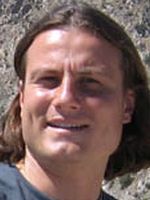 |
Preslav Nakov, Qatar
Computing Research Institute, Qatar Date: Friday 12th Bio: Dr. Preslav Nakov is a Principal Scientist at the Qatar Computing Research Institute (QCRI), HBKU. His research interests include computational linguistics, "fake news" detection, fact-checking, machine translation, question answering, sentiment analysis, lexical semantics, Web as a corpus, and biomedical text processing. At QCRI, he leads the Tanbih project, developed in collaboration with MIT, which aims to limit the effect of "fake news", propaganda and media bias by making users aware of what they are reading. Dr. Nakov is the Secretary of ACL SIGLEX and ACL SIGSLAV, and a member of the EACL advisory board. He also serves on the editorial boards of the Journals of Transactions of the Association for Computational Linguistics, Computer Speech and Language, Natural Language Engineering, AI Communications, and Frontiers in AI. Dr. Nakov received his PhD from the University of California at Berkeley (supported by a Fulbright grant). He is the recipient of the Bulgarian President's John Atanasoff award, named after the inventor of the first automatic electronic digital computer. Talk: Can We Spot the "Fake News" Before They Were Even Written? Abstract: Given the recent proliferation of disinformation online, there has been also growing research interest in automatically debunking rumors, false claims, and "fake news". A number of fact-checking initiatives have been launched so far, both manual and automatic, but the whole enterprise remains in a state of crisis: by the time a claim is finally fact-checked, it could have reached millions of users, and the harm caused could hardly be undone. An arguably more promising direction is to focus on fact-checking entire news outlets, which can be done in advance. Then, we could fact-check the news before they were even written: by checking how trustworthy the outlets that published them are. We will show how we do this in the Tanbih news aggregator, which makes readers aware of what they are reading. In particular, we develop media profiles that show the general factuality of reporting, the degree of propagandistic content, hyper-partisanship, leading political ideology, general frame of reporting, and stance with respect to various claims and topics. Event: (tentatively) The Text Generation Revolution, the Rise of Robo-writers, and the Future of Fake News Paper: Can We Spot the "Fake News" Before They Were Even Written? |
|
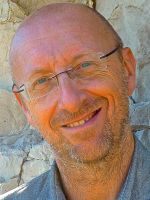 |
Paolo Rosso,
Universitat Politècnica de València, Spain Date: Thursday 11th Bio: Paolo Rosso is full professor at the Universitat Politècnica de València, Spain where he is also member of the PRHLT research center. His research interests focus mainly on author profiling, irony detection, opinion spam detection, and plagiarism detection. Since 2009 he has been involved in the organisation of PAN benchmark activities at CLEF and at FIRE evaluation forums, mainly on plagiarism / text reuse detection and author profiling. At SemEval he has been co-organiser of shared tasks on sentiment analysis of figurative language in Twitter (2015), and on multilingual detection of hate speech against immigrants and women in Twitter (2019). He has been PI of national and also international research projects funded by EC and U.S. Army Research Office. Recently, in collaboration with Carnegie Mellon University, he is involved in a project funded by Qatar National Research Fund on author profiling for cyber-security, which aims to profile who is behind to threat messages. He serves as deputy steering committee chair for the CLEF conference and as associate editor for the Information Processing & Management journal. He has been chair of *SEM-2015, and organization chair of CERI-2012, CLEF-2013 and EACL-2017. He is the author of 200+ papers, published in journals, book chapters, conference and workshop proceedings. Talk: Misinformation & Miscommunication: Fake News & Hate Speech Abstract: Social media have become the default channel for people to access information and express ideas and opinions. Unfortunately there are also undesired effects of this democratization of knowledge. One of them is that social media foster information bubbles and every user may end up receiving only the information that matches her personal biases, beliefs, tastes and points of view. A perverse effect is that social media are a breeding ground for the propagation of fake news: when a piece of news matches with our beliefs or outrages us, we tend to share it without checking its veracity. Another harmful effect is that the relative anonymity of social media facilitates the propagation of toxic, hate and exclusion messages. Therefore, social media contribute, paradoxically, to the misinformation and polarization of society, as we have recently witnessed in the last presidential elections in USA, the Brexit referendum, or the Catalan issue. In this talk some of these problems will be illustrated and some examples of shared tasks addressing these problems will be discussed. Event: Spotting irony and sarcasm in Twitter Paper: Unmasking Bias in News |
|
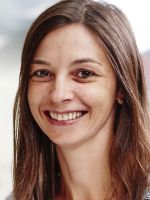 |
Lucia
Specia, University of Sheffield, UK Date: Tuesday 9th Bio: Lucia Specia is Professor of Language Engineering and a member of the Natural Language Processing group. She is also Professor of Natural Language Processing at Imperial College London. Her research focuses on various aspects of data-driven approaches to natural language processing, with a particular interest in multimodal and multilingual context models and work at the intersection of language and vision. Her work has various applications such as machine translation, image captioning, quality estimation and text adaptation. She currently holds an ERC (European Research Council) Starting Grant on Multi-modal Context Modelling for Machine Translation. In the past, she worked as senior lecturer at the University of Wolverhampton (2009-2011), where she was a member of the Computational Linguistics research group. She also worked as research engineer for the Machine Learning for Document Access and Translation group, at the Xerox Research Centre Europe, in France (2008-2009). She received a PhD from the University of São Paulo, Brazil, with the thesis on Word Sense Disambiguation applied to Machine Translation. Talk: When Language is not Enough in Natural Language Processing The talk will be on multimodal machine learning for NLP. Event: (tentatively) How to survive and thrive as a female researcher in a male-dominated research field |
|
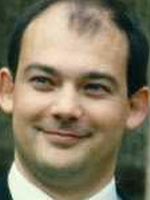 |
Carlo Strapparava,
Fondazione Bruno Kessler, Italy
Date: Monday 8th Bio: Carlo Strapparava is a senior researcher at FBK-irst (Fondazione Bruno Kessler - Istituto per la ricerca scientifica e Tecnologica) in the Human-Language-Technologies NLP Unit. His research activity covers artificial intelligence, natural language processing, intelligent interfaces, cognitive science, knowledge-based systems, user models, lexical knowledge bases, word-sense disambiguation, affective computing and computational humour. He is the author of over 200 papers, published in scientific journals, book chapters and in conference proceedings. He has the Italian scientific habilitation for full professor in informatics and engineering. He regularly serves in the program committees of the major NLP conferences. He was executive board member of SIGLEX, a Special Interest Group on the Lexicon of the Association for Computational Linguistics, Senseval (Evaluation Exercises for the Semantic Analysis of Text) organisation committee (2005-2010). In 2011, he was awarded with a Google Research Award on Natural Language Processing, specifically on the computational treatment of affective and creative language. Talk: NLP for Creative Language Abstract: Dealing with creative language and in particular with affective, persuasive and even humorous language has often been considered outside the scope of computational linguistics, and, in general, a challenge for AI systems. Nonetheless, it is possible to exploit current NLP techniques to address some founding aspects of these linguistic phenomena. We briefly review some computational experiences about these typical creative genres. Event: on the NLP for music, including analysis or lyrics and parodies in lyrics. Paper: to be announced |
|
Expression of interest (tentative abstract) |
passed |
|
Full text submission for review |
passed |
|
Notification of acceptance |
passed |
|
Camera-ready for pre-print version |
passed |
|
Camera-ready for post-conf volumes |
post-conference |
|
Registration: payment (authors) |
passed, but the system is still open. Please register ASAP. |
|
Payment |
March 15 |
|
Conference |
April 7 to 13, 2019 |
Submitting a paper constitutes a consent for publication and a promise in case of acceptance to attend the conference and to pay the fee. See more details in the legal notices. However, please contact us for double submission options.
Paper submission is divided into two phases:
-
Now, please express your interest now by registering a tentative abstract of the paper via the web submission system. At this stage, the full text is not required and the tentative abstract will only be used to assign reviewers for your paper. You can update abstract, title, or full text as many times as you wish while the paper submission system is open. At this stage we only need to know the topic of your paper in order to assign adequate reviewers.
-
By the full text deadline, the authors of papers registered at the previous step should upload the full text of the paper. No changes should be made after this date (but contact the organizers if you need to make changes).
The proceedings volumes will be published post-conference; pre-print versions will be available online during the conference.
For registration, please fill in the questionnaire in the registration system. After it, the system will send you a payment link. The registration is done in three steps:
1. Before March 8 (still open): visit the URL and create an account;
2. Before March 8 (still open): return to the same URL; login and fill in the registration form with your details and proceed to conference registration;
3. Before March 15: make sure that your payment was received (it will be confirmed by a emailed validated registration).
Payments can also be made later, but without a guaranteed seat on the tours.
The registration fee is 780 € full, 570 € student. Here is why: as we expected, our expenses are 650 € per fully-paid participant (nobody from the organization receives any remuneration; the fee covers only our direct expenses). However, we found that due to some EU laws of which we were not aware before, we have to pay a 20% VAT from all received fees, which gives 780 €. The difference goes to the government, not to us.
The fee includes, apart from attendance of the keynote and regular talks, three full-day tours, the lunch on the work days, and snacks at the poster session. The fee does not include any hard copy proceedings: almost nobody needs hard copies nowadays (you can contact us if you really need a hard copy).
For questions, please contact us at the registration@ address as indicated here.
By submitting a paper, at least one author has thereby promise, in case of acceptance, to pay the registration fee. We will not be able to publish any paper for which the fee has not been paid (except very few papers with a special discount; see below).
We try to make the fee as low as we could. Why this fee?
-
We do our best to keep the fee as low as possible. In particular, CICLing is completely non-profit: nobody of the organizers receives any remuneration.
-
CICLing gives much more than most conferences do. In particular, CICLing provides a greater number of keynote speakers, a much wider cultural program, lunches on all working days; this inevitably affects the fee. Lowering the fee beyond reasonable level would greatly decrease the quality of the conference and the benefits for its attendees, while making negligible difference for the budget of most participants, because:
-
Most universities allocate sufficient funding for attending conferences;
-
The fee is a minor part of your total expenses, as compared with the airplane tickets and lodging.
-
-
In addition to the expenses for each participant, the fee includes a small number of waivers for poor students. Namely:
-
If you pay: You pay a bit more than is spent on your participation: you also pay for students from poor countries;
-
If you don't: A waiver does not mean waiving the fee (a fee is not a punishment); instead, it means that others pay for you. Your waiver increases the fee for all.
-
-
The full fee is higher than the real expenses per participant, because it includes part of the student's expenses and waivers. The student fee is lower than the real expenses, because non-students partially pay for the students. With each student registration, we actually lose money.
-
We have no governmental funding. Please let us know if you can help in any way in (or give advice about) obtaining sponsorship or another kind of help.
On reduced registration fee: Note that a student registration fee already includes a discount, because it is lower than our expenses and we lose money with each student registration. However, a very limited number of further reduced fees will be available. To apply, please contact us and thoroughly justify your application. Many of the participants are students from poor countries, so please explain us why you want them to pay for you, and how you plan to attend an international conference if you can't even pay the fee (but you do have money for the ticket and the hotel, right?). Eligible for reduced registration are people from underdeveloped countries in case if their institutions really cannot pay the fee (generally not included: North America, Western Europe, China, South Korea, Japan). Authors must apply for reduced registration (clearly indicating the discount amount) before submission of their paper. No applications will be considered for already reviewed papers. Notes:
- Though all papers are judged by strictly academic criteria, in borderline cases and between papers of comparable quality we may give preference to papers with fully paid fee.
- Though we will do our best for this not to happen, we cannot guarantee providing some material (including the proceedings) to participants with reduced fee. Also, in case of lack of seats in the excursion bus we will have to give preference to fully registered participants.
We are interested in a few volunteer helpers, please contact us. Speakers of the local language and residents of the local venue are preferred. The volunteers may or may not have preference in assigning fee reduction.
On late-breaking papers:
Submission procedure: same as always. Please submit your abstract ASAP (you can change it later) for us to know about your paper and to reserve reviewers for it. However, we will evaluate only full papers.
Publication: These papers will be published in the same way as regular papers. Note that only up to 30% of late-breaking submissions will be published in Springer LNCS, but some may be offered publication in special issues of journals.
Presentation: Very probably the paper will be presented as a (very) short oral presentation plus poster, since the fixed number of long oral presentation slots is already distributed to regular papers. We might find some workaround, but we are not wizards.
NAACL reviewed papers: If you have NAACL reviews, please append them to the paper, as well as a short and specific description of the changes you made, or plan to make in the final version (if you need more time for this; specify this explicitly), to improve the paper according to these reviews. I recommend to arrange the PDF in this order: (1) the description of the changes, (2) the NAACL reviews, (3) the paper itself. Access to your NAACL reviews will speed up our decision process.
Submission deadline: We don't set a specific deadline, but here are the constraints:
-
We need some time to review your paper.
-
See registration deadline; if you do not pay by the deadline, we cannot guarantee your seat for the tours, though we will do our best.
-
The later you submit the more expensive your tickets and hotel may be.
-
You can submit a "good enough" version for review and improve it later by the camera-ready deadline.
Notification deadline: as soon as we receive reviews for each paper. Your NAACL reviews can speed up our work.
All accepted papers will be published in a proceedings volume edited by Springer in its Lecture Notes in Computer Science series, which is indexed in many major indices including Scopus, or in special issues of journals, according to the decision of the committee.
In addition to the text of the paper, authors are strongly encouraged to provide code and data that permit to reproduce their results, see CICLing verifiability, reproducibility, and working description policy.
Before submitting, please check our legal notices on video recording and on obligations of authors. In particular, by submitting a paper, at least one author thereby promises, in case of acceptance, to attend the conference in person to present the paper (if possible) and to pay the corresponding registration fee. Submissions are received electronically:
Contact: See email options, fax, and the street address on www.CICLing.org/contact.html.
Starting from 2011, CICLing implements a policy of giving preference to papers with verifiable and reproducible results, i.e., papers that provide the code and lexical resources that allow to reproduce the results. This is not a requirement. If for any reason you cannot accompany your paper with the code, go ahead and submit your paper normally.
A Special best verifiability, reproducibility, and working description award will be given at the conference.
For the time being, we encourage the submitted software to be anonymous but we do not require this: your data (but not the text of your paper) can disclose your identity if there is no reasonable way of avoiding this.
To submit your data for evaluation, upload them to our FTP site ftp://ftp.cicling.org/in/CICLing-2019, as a an archive (such as Zip). The name of the archive should be CICLing_NNN.ext, where NNN is the submission ID assigned by EasyChair, for example, CICLing_123.zip. If your data are too large to be uploaded, then please send us a URL where the data can be downloaded, and we will copy your files to our server (please use Subject: "CICLing_NNN software").
Please try to make your software self-contained by reasonably including whatever is needed to run it (such as specific versions of programs). Specifically, please avoid pointing to URLs where the data can be downloaded from; instead, please include the actual data whenever possible -- this is important for reproducibility because the data on remote servers might change (or become unavailable) at any moment, while attached data will be safely stored on our servers. All programs should be submitted in source code, and all data in clearly specified, preferably human-readable, format.
Please see a detailed description of the CICLing verifiability, reproducibility, and working description policy, our reasons and goals, and some FAQ. Note that by submitting your material you allow its free distribution in case of acceptance of your paper; see more details in legal disclaimers.
The following awards have been given:
|
|
Best Paper awards, given by the Award Committee basing on the reviewers' scores and judgment of the Committee members. The criteria taken into account are: novelty, originality, and importance of the reported work and overall quality of the paper. Winners: First place: Amine Trabelsi and Osmar Zaiane, Canada. Contrastive Reasons Detection and Clustering from Online Polarized Debates. Second place: Hongyu Yan, Qinghong Gao, Jiachen Du, Binyang Li and Ruifeng Xu, China. Adversarial Training based Cross-lingual Emotion Cause Extraction. Third place (shared): Yeyang Zhou, Yixin Chen, Yimin Chen, Shunlong Ye, Mingxin Guo, Ziqi Sha, Heyu Wei, Yanhui Gu, Junsheng Zhou and Weiguang Qu, China. EAGLE: An Enhanced Attention-based Strategy by Generating Answers from Learning Questions to a Remote Sensing Image. Third place (shared): Xuan-Son Vu, Son Tran and Lili Jiang, Sweden and Australia. dpUGC: Learn Differentially Private Representation for User Generated Contents. |
|
|
Best Student Paper award, given by the Award Committee basing on the same criteria, but choosing out of papers whose first author is a full-time student and excluding the papers selected for a Best Paper award. Winners: Charles Welch, Veronica Perez-Rosas, Jonathan Kummerfeld and Rada Mihalcea, USA. Look Who’s Talking: Inferring Speaker Attributes from Personal Longitudinal Dialog. |
|
|
Best Verifiability, Reproducibility, and Working Description award, given by the Software Reviewing Committee for the software accompanying the paper that best fulfills the goals of our verifiability, reproducibility, and working description policy. The criteria taken into account are: the clarity, simplicity, completeness, and overall quality of the code accompanying the paper that allows to verify and exactly reproduce the claims of the paper; see more details in the instructions for software reviewers. Winner: Alexander Rybalov. Text Analysis of Resumes and Lexical Choice as an Indicator of Creativity. |
|
|
Best Presentation award, given to oral session authors by a ballot among all participants. The criteria taken into account are: the clarity and overall quality of the presentation, and in lesser degree the technical quality of the presented work. Winner: Christopher G. Harris, USA. A Framework to Build Quality into Non-Expert Translations. |
|
|
Best Poster award, given to poster session authors by a ballot among all participants. The criteria taken into account are: the clarity and overall quality of the poster, and in lesser degree the technical quality of the presented work. Winners (shared): Serena Pelosi, Alessandro Maisto, Lorenza Melillo, and Annibale Elia, Italy. Sentiment Analysis through Finite State Automata. MohammadReza Davari, Leila Kosseim, and Tien D. Bui, Canada. Toponym Identification in Epidemiology Articles – A Deep Learning Approach. |
|
|
Best Inquisitive Mind award, given to the attendee who asks the greater number of (good) questions to the presenters during the conference. Winner: Natwar Modani, India. |
The papers accepted for the poster/demo session are anticipated to be published in a special issue of a journal, to be announced later. See here the guidelines for submitting and preparing your poster.
Please print your poster and bring it to the conference. We will not be able to arrange for printing on site.
Poster session will be combined with the welcome party, so people will be in good mood when reading your poster. In our experience the authors often have better opportunity to communicate their idea to interested attendees via individual live interaction at a poster presentation than via standard talk. If you feel your paper is not competitive enough for the oral session, do go ahead and submit it: a poster can be an excellent opportunity for you to get feedback.
Immediately before the poster session the poster papers will be presented (better to say, announced) orally. Each presentation will be of one minute, and you can use a couple of slides. We recommend to use one or two slides to show the title and the main idea of your work, and maybe the main results, and the final slide to show an image of your poster, for people to recognize your poster during the poster session. The purpose of this one-minute presentation is not to explain your work in detail but to attract attention of people to you and your poster. If you succeed, you will then have two hours to explain your work to all interested people, during the poster session and in fact all the breaks on other days. Please only include the main selling points of your work in this short presentation; too dense information would only confuse people.
To streamline the session, we will ask you to send us your presentation, to be pre-loaded to our laptop.
See schedule overview. There will be four days of technical program and three days of academic activities and cultural program (see our disclaimer about availability of tours). Here is the general layout:
| Sunday 7: |
Academic and cultural activities |
|
|
Monday 8: |
Keynote talk, regular talks, special event, short presentations, poster session + welcome party 1 |
|
|
Tuesday 9: |
Keynote talk, regular talks, special event |
|
|
Wednesday 10: |
Academic and cultural activities |
|
|
Thursday 11: |
Keynote talk, regular talks, special event, short presentations, poster session + welcome party 2 |
|
|
Friday 12: |
Keynote talk, regular talks, special event, awarding and closing ceremony, possible cultural activity |
|
|
Saturday 13: |
Academic and cultural activities |
If you don't have time for the cultural program, you can arrive on Monday and leave on Friday; you will miss some cultural activities.
Saturday tour meeting place has changed. It will be the same as the past Sunday tour meeting place: the parking lot in front of this Burger King. We will organize a group to walk together to the harbor
. Time to meet changed: 9:45. Boarding place changed; here is the new boarding point, but don't go there, go to the meeting place in front of the Burger King.The place for Wednesday has changed! Address: Avenue Henri Becquerel, see it on Google Maps. See the announcement at the top of this page.
The meeting place for the Sunday tour is the parking lot (not the hotel) located in front of this Burger King. On Sunday, we meet there at 7:15 am, and the bus will leave at 7:30 -- really at this precise time; that is, if you come at 7:31, you miss it.
The cultural program will include three full-day tours, tentatively with the following distribution (the order of the tours might still change, please return to this site later):
|
Sunday 7: |
Full-day tour to Bordeaux vineyards (Saint Émilion village) and Cognac region |
|
|
Wednesday 10: |
Full-day tour to Loire valley castles |
|
| Saturday 13: |
Full-day tour to Fort Boyard (seen from outside) and isle of Aix (where Napoleon spent his last days in France after the Battle of Waterloo). |
Traditionally, we exchange coins: please bring some coins of your country. We will put them on a large tray, from which you will take as many exotic coins as many you put there yours. Please bring many: 200 people (and their children) will want your coins!
In this year, our hotels are very close to the conference venue, so the attendees are expected to arrive to the conference venue on their own. No transportation between the hotels and the venue will be provided. Transportation for the tours will be provided from/to the recommended hotels.
If you want to share your hotel room to cut the costs, please contact me; indicate male or female. I will put you in contact with other interested people.
It is convenient for the participants to stay in the same hotel or nearby hotels, to facilitate informal interaction. Usually our participants form ad-hoc informal companies in the hotel reception to go to some restaurant, local sightseeing, etc.
All cultural activities and daily bus pickup and drop-off will be from the following three very close hotels on campus (Première Classe and Kyriad are adjacent 2- and 3-star hotels, under the same management; Altica is on the other side of the street).
To book these hotels, please contact them directly. We have pre-reserved a large number of rooms, but book now because our reservation will be cancelled in mid-March.
[recommended] Hotel Première Classe La Rochelle Minimes (opened 2013): double rooms at the negotiated price of 42€ per night, with an extra 0.99€ local tax per person per night, and breakfast available for 5€. Please book by email at manager.larochelle.minimes@kyriad.fr and quote "CICLING conference reservation", additionally giving your full name and the booking dates.[recommended] Kyriad Hotel les Minimes (opened 2013): double rooms at the negotiated price of 66€ per night, with an extra 1.65€ local tax per person per night, and breakfast available for 10.5€. Please book by email at manager.larochelle.minimes@kyriad.fr and quote " CICLING conference reservation", additionally giving your full name and the booking dates.
[recommended] Altica Hotel: double rooms at the negotiated price of 50€ per night, with an extra 0.99€ local tax per person per night, and breakfast available for 9.5€. Please quote "CICLING conference reservation" when booking at +33 5 46 43 29 09 or altica-la-rochelle@altica.fr).
You may prefer to stay closer to the old harbour, however incurring a 10 min walk to and from the conference venue. We made pre-reservations at the following hotels:
Mercure La Rochelle Vieux-Port: double rooms at the negotiated price of 124€ per night (single room at 111€), with an extra 2.53€ local tax per person per night. Breakfast is included in that price. Please book by email at h0569@accor.com and quote "CICLING conference reservation", or call +33 5 46 50 61 50.
Ibis La Rochelle Vieux-Port: double rooms at the negotiated price of 95€ per night (single room at 85€), with an extra 1.65€ local tax per person per night. Breakfast is included in that price. Please book by email at h0638@accor.com and quote "CICLING conference reservation", or call +33 5 46 41 60 22.
Attendees with limited resources may be interested in this cheaper hotel, though we do not have any pre-reservations there:
Youth hostel La Rochelle: shared rooms (from 16.50€), private ensuite (36€), including breakfast. Limited availability: please book ASAP! If the hostel appears to be booked out online, there may still be vacancies, do not hesitate to call (+33 5 46 44 43 11) or email (larochelle@hifrance.org).
The conference venue was changed to a newer, closer to the hotels, and bigger one. The new venue is: Pôle communication, multimédia et réseaux, University of La Rochelle, 44, avenue Albert Einstein, 17000 La Rochelle, France (Google map).
In other years we provided transportation between the hotels and the venue. In this year, our hotels are very close to the conference venue, so the attendees are expected to arrive to the conference venue on their own. No transportation between the hotels and the venue will be provided. See you directly in the conference hall at 9 am on the lecture days. Transportation to the tours will be provided from/to the recommended hotels (those three hotels are in the same place).
See some details about the city and the venue.
By submitting a paper or attending the conference you accept the following terms:
Obligations of the authors. Submitting a paper constitutes a consent for publication, acceptance of the terms specified hereby, and a promise, in case of acceptance for the main volume of the proceedings, to provide a correct and complete camera-ready version of the paper in editable (source) format, a duly filled copyright transfer form, to attend the conference (if possible), and to pay the registration fee, except in the cases agreed upon in due time with the organizers. Contact us for double submission options.
Software and data. Software and data accompanying the paper will be treated in the same way as the paper itself in that in case of acceptance, free access to this material can be provided to the readers of the paper or to public. By submitting software or data, you agree that in case of acceptance of the paper for the main proceedings volume, it can be freely distributed by the organizers, and anybody is allowed to copy it. This also applies to the cases when you provide only a URL: you agree that the organizers can store a copy of the data accessible via this URL and, in case of acceptance, freely distribute this copy. While you cannot restrict copying of the submitted data (otherwise don't submit it), you can restrict using your data by including a reasonable no-nonsense license, which should allow the use of the data for research purposes.
Cultural program. The cultural program is a courtesy of the organizing committee provided "as is" and intended to help the participants in visiting certain places, which they visit under their own risk and responsibility. Quality and safety. Some or all of the cultural program activities may be organized not professionally but by volunteers. We will make any reasonable effort in order for the activities to be interesting, well-organized, and safe, but we cannot guarantee any particular quality of service. Some activities may require physical effort, such as much walking or hill-climbing, and/or rely on the use of public transportation.
Force-majeure. Though so far no tours have been cancelled due to force-majeure circumstances at any of the past CICLing conferences, the following formal disclaimer applies: Some or all of the cultural program may depend on weather conditions, technical, political, or other circumstances. Permission for transportation or visiting specific places may depend on the authorities and not on the organizing committee; thus the corresponding tours can accordingly be cancelled at any moment without prior notice. Since all expenses are done in advance and are non-refundable, in case of cancellation of the tours no refund can be offered to the participants. The organizers may or may not be able to provide alternative cultural or academic activities instead of cancelled tours.Video recording. All CICLing-related activities, both academic and cultural, may be video recorded, photographed, and/or live video broadcast over the Internet or otherwise. The organizers may make the recordings and photos publicly available or provide them to third parties for any legal purpose, including storage and distribution. Unless otherwise explicitly communicated to the organizers in advance, by submitting a paper, registering for the conference, or attending the conference you authorize the organizers, attendees, or persons authorized by the organizers to video record, photograph, and/or video broadcast all conference activities, including your presentation, and to make these video recordings and photos publicly available and/or available to any third party for any legal purpose, and you also promise to explicitly confirm this authorization, in writing or otherwise, if later asked to do so by the organizers. If this is a problem, please contact us in advance.
General disclaimer. The following text does not imply any specific risk for CICLing attendees; this is a standard legal disclaimer generally applied to any public event in any part of the world: No special insurance, medical service, or security measures are guaranteed to be provided for the conference. The participants are advised to arrange with a third party for their travel insurance that includes international medical coverage, as well as to observe the standard safety precautions. The participants will take part in all activities of the conference entirely on their own risk. The organizers shall not be liable, to the extend permitted by law, for any illness, injuries, stolen objects, or any other problems that the participants may face during the cultural or academic program of the conference.
General Chair: Alexander Gelbukh
Organizing Committee
All are with the L3i laboratory, University of La Rochelle.
| Chair: | |
| Antoine Doucet | |
| Co-chairs: | |
|
Nicolas Sidère |
|
| Members: | |
|
Karell Bertet |
|
| Additional support: | |
|
Viviana Beltran |
|
| Program Committee |
|||||
|
|
Ajith Abraham Bayan Abushawar Galia Angelova Aladdin Ayesh Sivaji Bandyopadhyay Srinivas Bangalore Leslie Barrett Roberto Basili Pushpak Bhattacharyya Christian Boitet Hiram Calvo Nicoletta Calzolari Erik Cambria
Nick Campbell Samhaa El-Beltagy
Alexander Gelbukh (chair) |
Karin Harbusch
Hitoshi Isahara Ruslan Mitkov
Dunja Mladenic |
Kjetil Nørvåg Viktor Pekar Anselmo Peñas Octavian Popescu Soujanya Poria Marta R. Costa-Jussà German Rigau
Horacio Rodriguez
Hassan Sawaf
Mike Thelwall Attila Novák Kemal Oflazer Constantin Orasan Partha Pakray Ivandre Paraboni |
||
Ted
Pedersen
Florian Holz
Miloš Jakubíček
Sergio Jiménez Vargas
Miikka Silfverberg
Ronald Winnemöller
Best Paper Award Selection Committee
Alexander Gelbukh
Eduard Hovy
Rada Mihalcea
Ted Pedersen
Yorick Wiks
Please distribute the CFP! Here is a poster in different formats, please hang it on a wall in your University:
| Plain text |
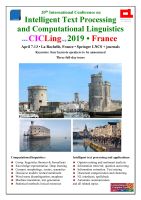 |
![]() Return to the
top of the page.
Return to the
top of the page.




(This conference is not affiliated in any way with the WASET
ICCLITP
conference, which copied our wording,
or with their
"Advances in Computational Linguistics and Intelligent Text
Processing" journal issue.)


